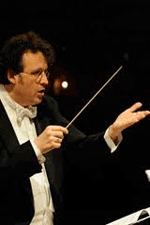> [Archived] Chronicles

A Concert's 'Requiem'
In the quartet there were only famous, quality voices that, unfortunately, had no chance to unify. Iulia Artamanov, the soprano, has indeed a beautiful voice, though she has some intonation difficulties, her high-pitched notes being slightly harsh while the medium-low ones being somewhat faded. Antonela Bârnat, the mezzo-soprano, is fully capable of brandishing the mellow ring of her tone and her elegant declamation with such composure as to testify to her grasp of technique and style. Marius Vlad Budoiu, the tenor, carries any score with self-confidence, tunefully and intelligently, though his high-pitched notes explode out of context. George-Emil Crăsnaru, the bass, brings nostalgia, maybe even sadness, at the memory of a rich voice, now bereft of strength and substance, and thus hardly distinguishable, despite his visible effort. Consequently, each one of them performed by following his or her own route, far from what the composer imagined as a blending of the voices.
Informal, his gestures and body language sometimes surprising and inadequate, Mark Mast managed to fuse the choir, orchestra and soloists into a comprehensible musical construct. Alas, one that lacked the primarily religious depth that was demanded not only by the Latin text but also by the fact that, as was mentioned in the playbill, the author wrote the text ‘bearing in mind tragic moments from his personal life’ – such as ‘the loss of his children, for instance’. I got to listen to a performance that abounded in forceful moments, in intensity, perhaps even indignation, but lacking in meditation and prayer. Thus, it remains a dramatic rendition for those that are partial towards strongly emphasized intense nuances, while disappointing those that were, conversely, hoping to see the traditional hallmarks of such a widely appreciated work. The seats that were left vacant in the Athenaeum auditorium after the intermission go to prove just this. The intermission itself was another surprising and uncanny feature, one that has been absent from our recent musical seasons, interrupting the Requiem’s ‘flow’ for a ‘breather’ having shocked a lot of the music lovers.
Translated by George Mihăiță and Elena Daniela Radu
MTTLC, The University of Bucharest














